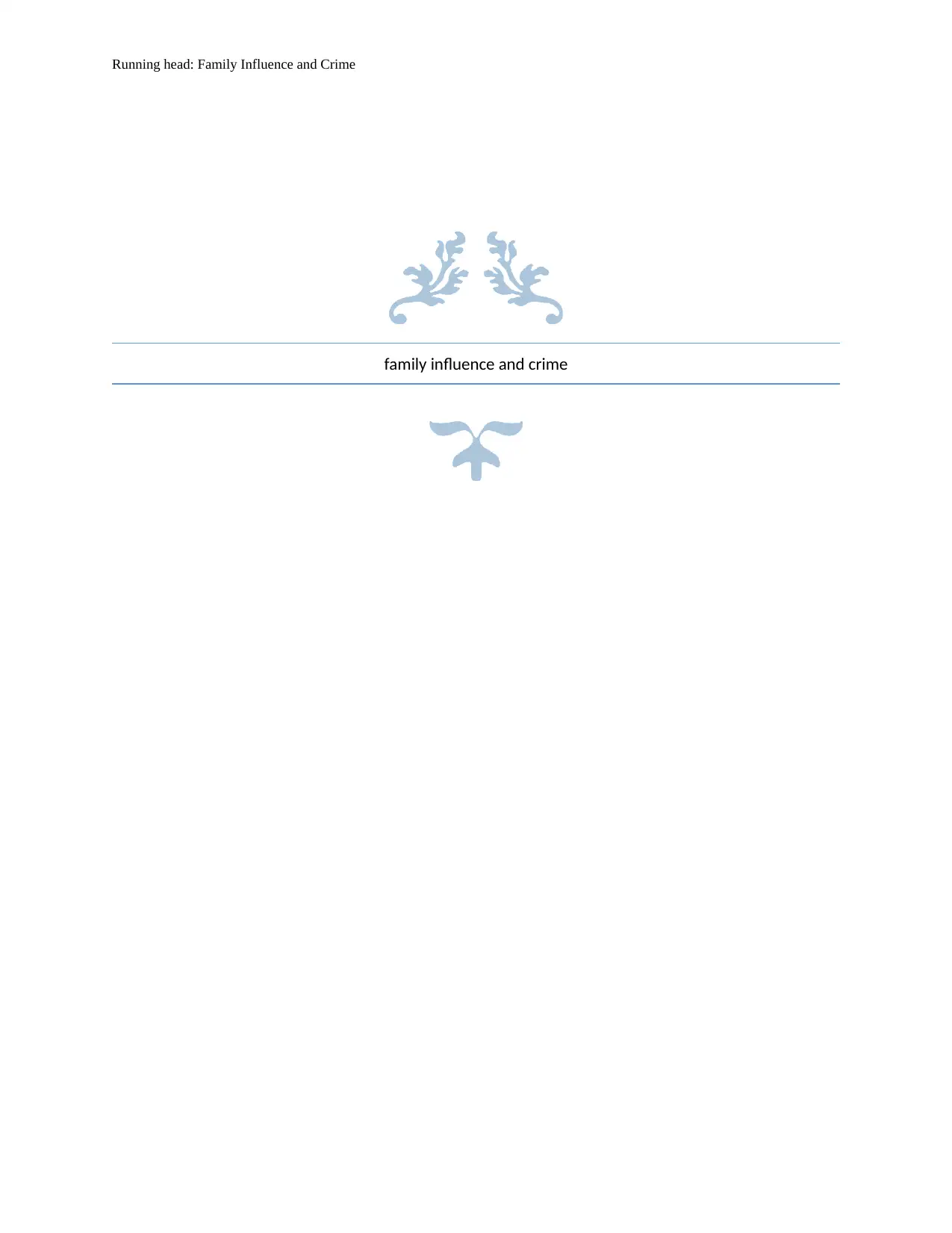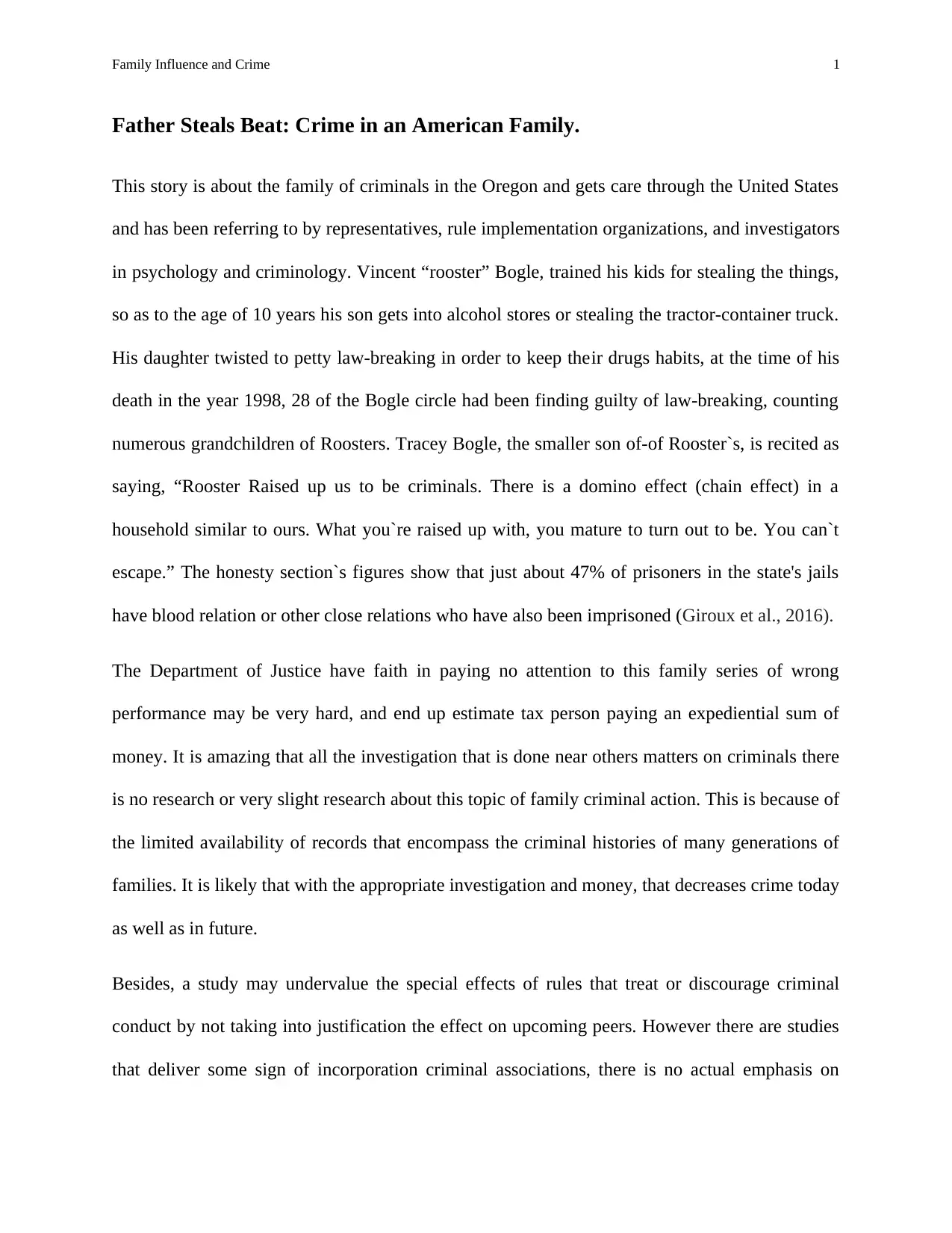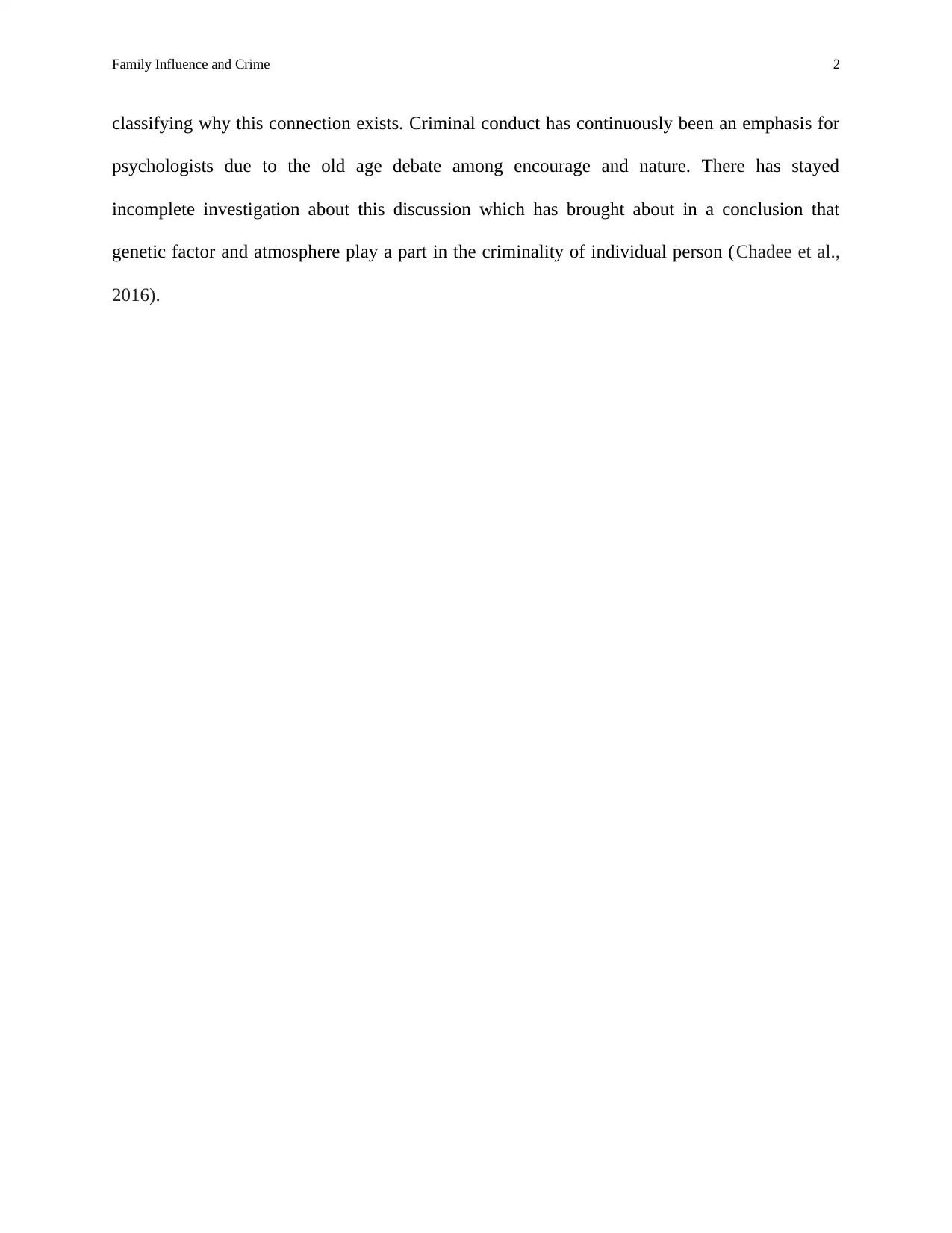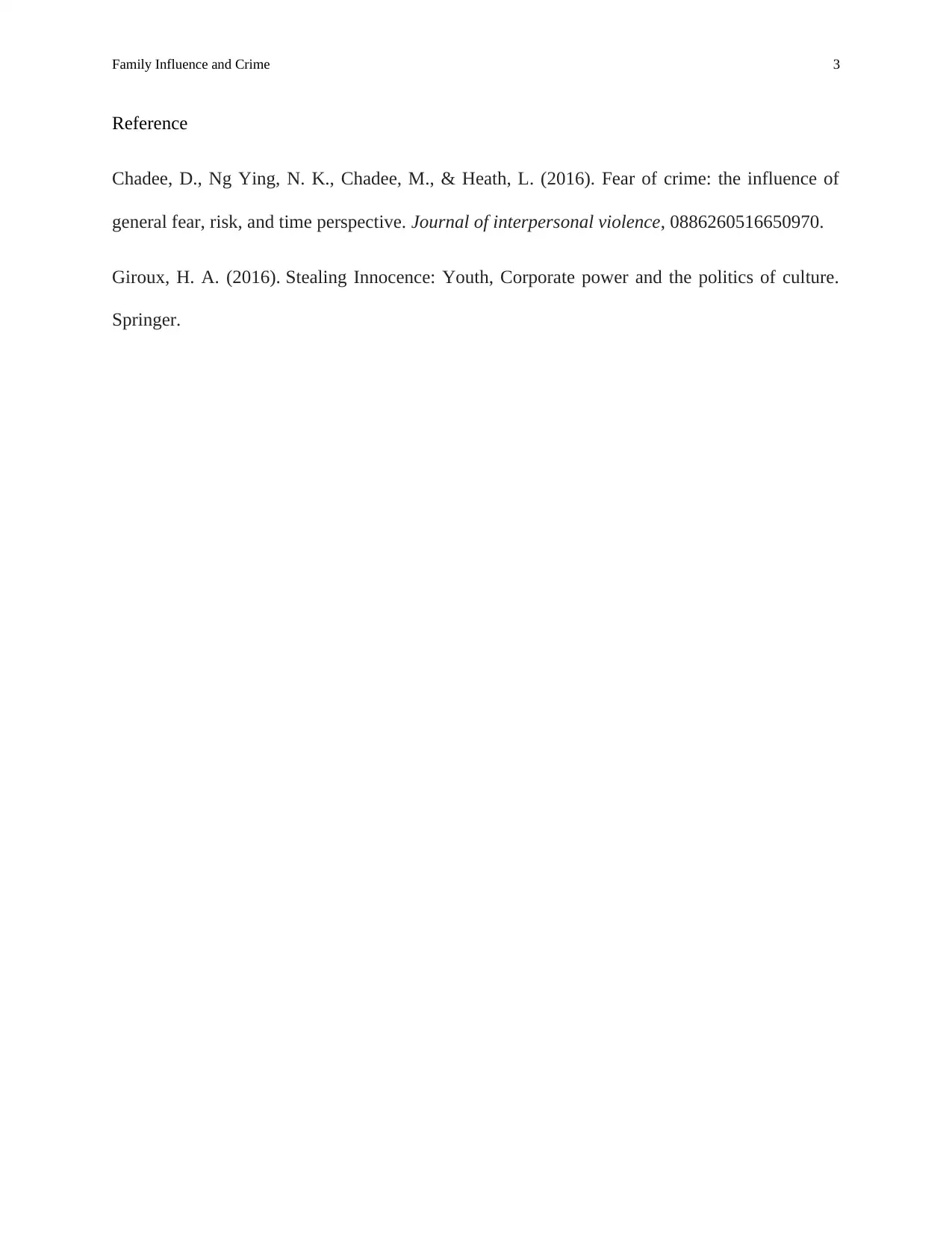Analysis of Family Influence on Crime: A Psychology Report
VerifiedAdded on 2019/09/23
|4
|529
|195
Report
AI Summary
This report explores the significant impact of family on criminal behavior, drawing from the case study of the Bogle family and incorporating research from various sources. It discusses the intergenerational cycle of crime, where children often follow in their parents' footsteps due to environmental and potential genetic factors. The report references studies that highlight the influence of family on an individual's inclination towards criminal activities and also acknowledges the limited research in this area. Furthermore, it considers the ongoing debate between nature versus nurture and the roles of genetics and environment in shaping criminal tendencies. The report underscores the need for more extensive research to understand the underlying mechanisms of family influence and offers insights into how these dynamics impact criminal behavior. It highlights the importance of considering both genetic predispositions and environmental factors in understanding and addressing the complex interplay between family and crime.
1 out of 4





![[object Object]](/_next/static/media/star-bottom.7253800d.svg)